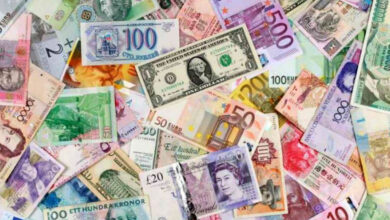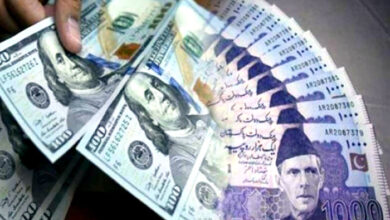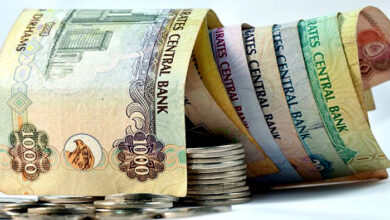Traders in most Asian markets are on the sidelines as they monitor the situation in Ukraine.

Hong Kong, (AFP) – Ahead of this week’s meeting of the Federal Reserve, which is expected to begin raising interest rates, Asian markets were generally down on Monday as investors kept a close eye on developments in the Ukraine conflict and diplomatic attempts to settle the issue.
It’s good news that oil prices are down following last week’s record high, but the commodity remains above $100, which means inflation will continue to rise.
As Russia’s conflict in Ukraine continues to rage, Vladimir Putin’s statements that there was “good progress” in discussions with Kyiv were unable to give much assistance on the trading floors.
Yang Jiechi is scheduled in Rome later today to meet with US National Security Adviser Jake Sullivan to discuss Ukraine and how to settle the conflict quickly for both countries.
Instead of condemning the Russian incursion, Beijing has blamed the deterioration of Russian-Ukrainian relations on NATO’s “eastward expansion,” echoing Kremlin security concerns.
On top of that, investors are anticipating the Federal Reserve’s next policy meeting, which is likely to conclude on Wednesday with an announcement of an interest rate increase of a quarter–point.
Comes at a time when the US central bank has to figure out what it can and can’t do about rising prices and the need to keep the world’s biggest economy going after Ukraine.
Volatility in global equity markets is getting worse because of changes in market sentiment and rising commodity prices, says Louise Dudley of Federated Hermes.
“Geopolitical concern surrounding Russian crude continues to sway prices in the near run.”
It’s no surprise that the dollar has surged versus the yen, the euro, and the pound, all at multi-year highs, due to the threat of rising borrowing rates.
Asia was in a bind after another decline on Wall Street.
Hong Kong led the way with a nearly 3% drop, with the stock market falling below 20,000 for the first time in over six years. Because of China’s crackdown on the IT industry and the country’s lockout of Shenzhen’s innovation center, tech businesses were among the most hurt.
While Tokyo, Sydney, and Jakarta climbed, Shanghai, Seoul, Singapore, Taipei, and Manila all fell.
Despite Russia’s sanctions and the news of a delay in talks to revive the 2015 nuclear deal between Iran and international powers, oil prices fell.
As it looked like a solution was near, the supply problem would have been eased if Tehran had been able to resume selling its oil on global markets once again.
Moscow said it was waiting for assurances from Washington that Western sanctions against Russia in response to Ukraine’s annexation would not hurt its trade with Iran. This is what Moscow said.





